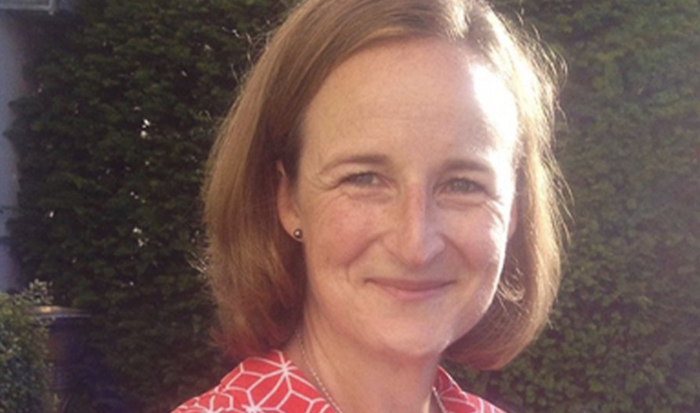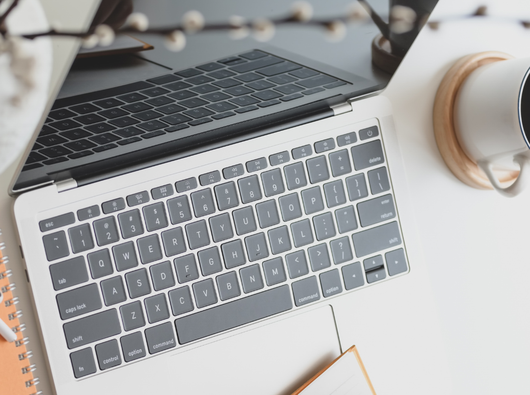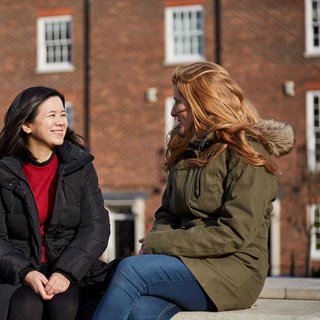Things I've changed to manage fatigue
Carina, 45, was diagnosed with hairy cell leukaemia in June 2017. After chemotherapy she has been in remission since November 2017. Here, she explains how she copes with feeling tired and fatigued.

Carina, 45, was diagnosed with hairy cell leukaemia in June 2017. After chemotherapy, she has been in remission since November 2017.
My type of leukaemia is very responsive to treatment, but I do still suffer from fatigue on occasion.
Fatigue really is different to tiredness. Tiredness creeps up on you and comes on gradually. Fatigue is like a wall that just suddenly smacks you in the face. You could have been feeling absolutely fine, full of energy and really perky, and then all of a sudden you just feel completely flat, as if someone has pulled out your plug.
Working out what makes fatigue worse
It’s definitely not helped by late nights, long days or stress. I have to listen to my body a lot more, and not be so keen to accept all of those invitations out. It’s about pacing yourself more, and not feeling guilty if you need to change plans.
Sometimes it’s just a case of sitting down and giving in to it. Not in a negative way – just going with it and not fighting it. Because the sooner that you do that, the sooner hopefully you’ll come through it and feel perky again.
That can be difficult if I’m in a situation where I can’t go to bed or sit on the sofa, like if I’m at work. I feel that wall of fatigue hit me and I think: “What do I do?”
Coping with fatigue
There are three main things that I’ve tried to change in my life. I aim to get eight hours sleep a night. I’ve reduced the stress by taking a different position at work, so I don’t have as much management responsibility as I used to. And I exercise because it’s a great de-stresser – it helps me sleep better.
The ‘new me’ is so much more aware of myself. Before, I used to slow down two days after I should have. Now, I feel the fatigue coming and I think to myself, “Get to bed early, make time, cancel that evening out. You can always arrange it for next week. Just cancel it, have an early dinner and an early night and focus on sleep.”
I try to do a little bit of exercise every day, even if it’s just the walk from the train station to the house.
The emotional impact of fatigue
I think that the hardest part of the fatigue, for me, is the mental side. Just by chance, I had some cognitive behavioural therapy (CBT) a year before I was diagnosed – because I wasn’t dealing well with things at work. In hindsight I realise that I was utterly exhausted, and already ill, but I didn’t know.
The CBT has helped me accept that when the fatigue hits, it’s not good but I’m not going to panic about it. Instead I think, “What am I going to do about it?”
That has really helped me cope with the uncertainty of fatigue, because I don’t know how long it’s going to last. It might be an hour or it might last until I go to bed. But there’s no point in thinking, “Does this mean I’m back on the road to relapse?”
So I say to myself, “It’s OK, what can I do? Can I rest? Am I somewhere where I can close my eyes for half an hour?” And not get in a flap. Because the more I get in a flap about it, the worse it gets, particularly if you’re tired it seems 100 times worse.
Coming to terms with fatigue
I feel like I need to make an allowance for fatigue in my life. So, firstly, it’s about physically trying to avoid the fatigue coming on. And secondly, it’s about mentally accepting that this is something I have to come to terms with. It’s part of my new life, albeit a much perkier life in comparison to when I was horribly ill.
How to manage fatigue - next steps you could take
Find practical tips to boost your energy and manage fatigue.
Visit our online forum and get tips from other people with blood cancer.
Join our mailing list to get stories and health information straight to your inbox.
If you are worried about anything or just want to talk, contact us.

Janssen-Cilag Ltd has supported Blood Cancer UK with funding for the production of this web page and others within the ‘Living well’ section. It had no influence over the content.

